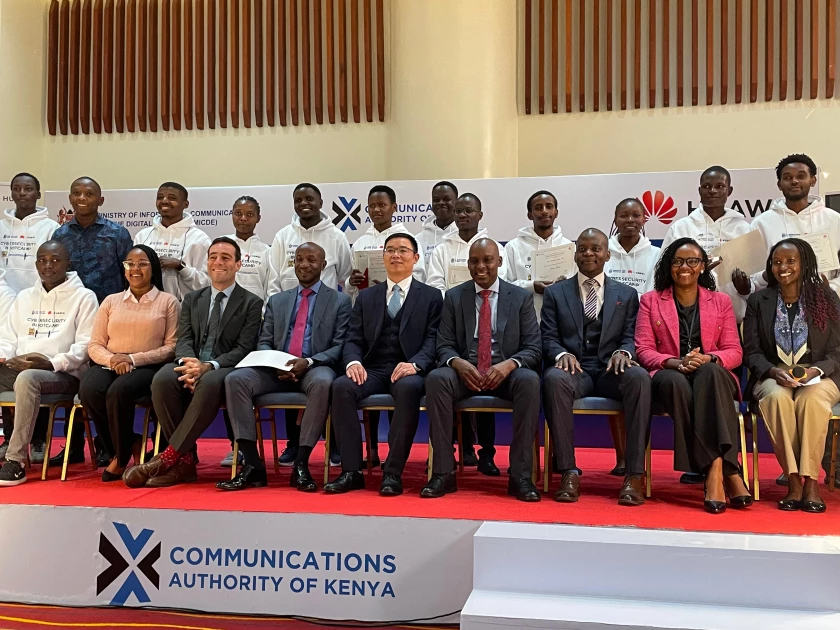15 Kenyan university students recognized for excellence after cybersecurity bootcamp


Audio By Vocalize
Fifteen Kenyan university students have emerged as young digital warriors, ready to protect the country’s digital space after completing a competitive cybersecurity boot camp under the Huawei ICT Academy. The program takes place in three phases and aims to equip students with essential cybersecurity skills.
The Cyber Security Bootcamp primarily consists of university students pursuing ICT, cybersecurity, and related courses. The competition offers participants hands-on learning experiences, networking opportunities, and potential job placements.
On Wednesday, out of 3,000 students, 15 emerged as the top performers and were awarded certificates and gift hampers by Huawei. They were unveiled by David Mugonyi, Director General/CEO of the Communications Authority of Kenya, alongside Steve Zhang, Deputy CEO of Huawei Kenya.
James Mwangi, a student at Jomo Kenyatta University of Agriculture and Technology (JKUAT) and one of the boot camp participants, shared how he discovered the opportunity through a Twitter post. Encouraging other students who may have missed out, he said, “As long as you remain curious and maintain a learning mindset, more opportunities will come.”
He further quoted, “Opportunities are like buses; there’s always another one coming. Even if this one is nearing the final stage, another opportunity will arise.”
Once a student reaches the finals, they still have a chance to participate in the next competition. Ryan Chironga, a student from the University of Nairobi, is a returning alumnus from a previous competition where he was also among the awardees.
Explaining his decision to return, Ryan said, “First and foremost, it’s my love for the game. Cybersecurity is always very interesting.”
But why is it essential to equip students with such skills? Michael Kamau, head of the ICT program at Huawei, emphasized the significance of building national capacity.
“As more investment goes into the digital economy, there are associated risks. We believe we have a role to play in developing capable young people who can help secure our future by safeguarding infrastructure and networks built by both the government and private companies,” said Kamau.
He added, “It’s always important to build capacity among young people to tackle future cybersecurity challenges.”
Recent statistics indicate that over 840 million cyber threat events were detected between October and December 2024, marking a 27.82% increase from the previous quarter.


Leave a Comment